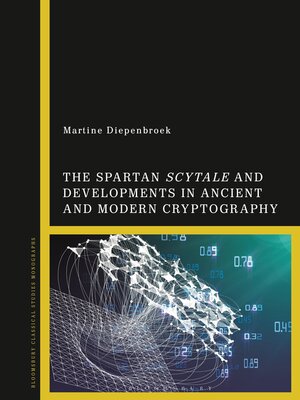The Spartan Scytale and Developments in Ancient and Modern Cryptography
ebook
By Martine Diepenbroek

Sign up to save your library
With an OverDrive account, you can save your favorite libraries for at-a-glance information about availability. Find out more about OverDrive accounts.
Find this title in Libby, the library reading app by OverDrive.



Search for a digital library with this title
Title found at these libraries:
| Library Name | Distance |
|---|---|
| Loading... |
This book offers a comprehensive review and reassessment of the classical sources describing the cryptographic Spartan device known as the scytale. Challenging the view promoted by modern historians of cryptography which look at the scytale as a simple and impractical 'stick', Diepenbroek argues for the scytale's deserved status as a vehicle for secret communication in the ancient world. By way of comparison, Diepenbroek demonstrates that the cryptographic principles employed in the Spartan scytale show an encryption and coding system that is no less complex than some 20th-century transposition ciphers. The result is that, contrary to the accepted point of view, scytale encryption is as complex and secure as other known ancient ciphers.
Drawing on salient comparisons with a selection of modern transposition ciphers (and their historical predecessors), the reader is provided with a detailed overview and analysis of the surviving classical sources that similarly reveal the potential of the scytale as an actual cryptographic and steganographic tool in ancient Sparta in order to illustrate the relative sophistication of the Spartan scytale as a practical device for secret communication. This helps to establish the conceptual basis that the scytale would, in theory, have offered its ancient users a secure method for secret communication over long distances.
Drawing on salient comparisons with a selection of modern transposition ciphers (and their historical predecessors), the reader is provided with a detailed overview and analysis of the surviving classical sources that similarly reveal the potential of the scytale as an actual cryptographic and steganographic tool in ancient Sparta in order to illustrate the relative sophistication of the Spartan scytale as a practical device for secret communication. This helps to establish the conceptual basis that the scytale would, in theory, have offered its ancient users a secure method for secret communication over long distances.







